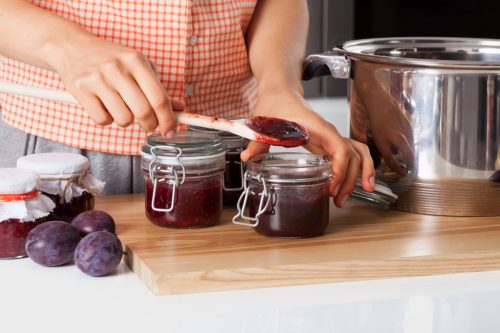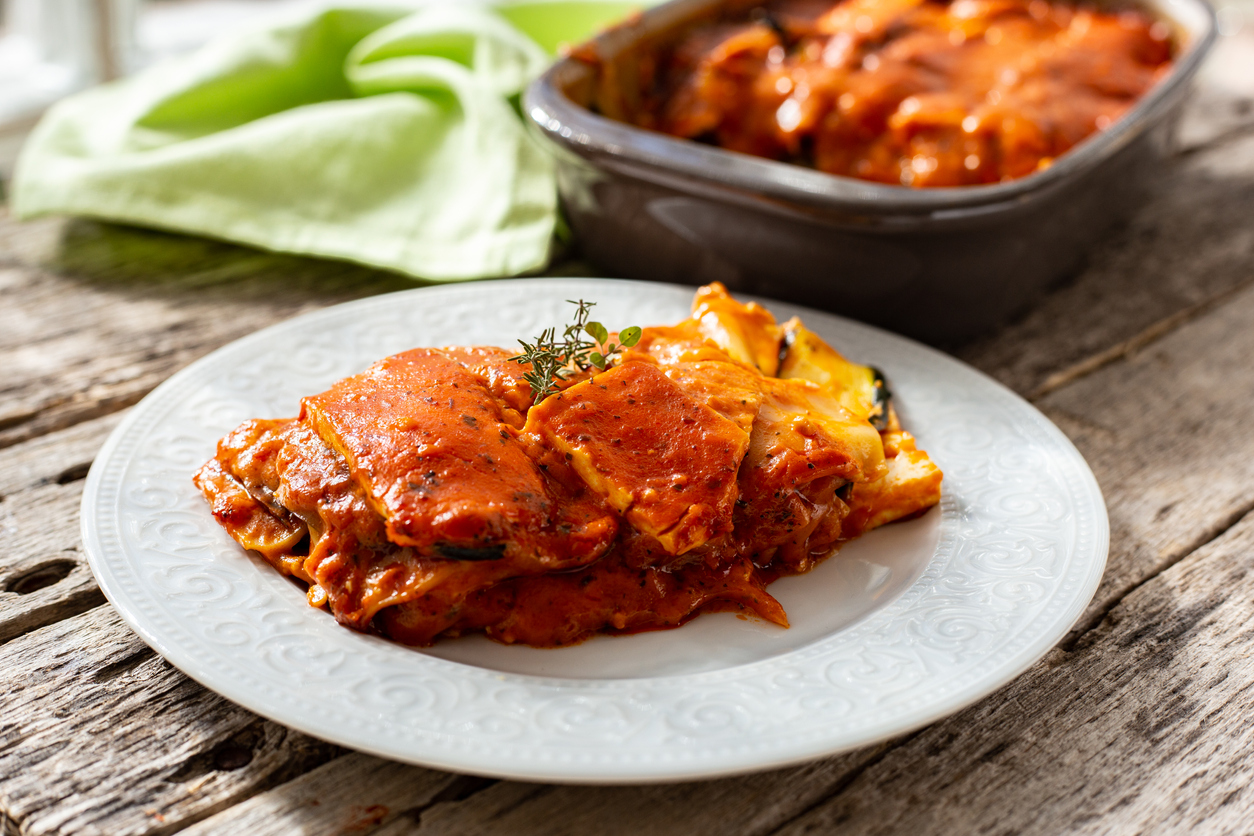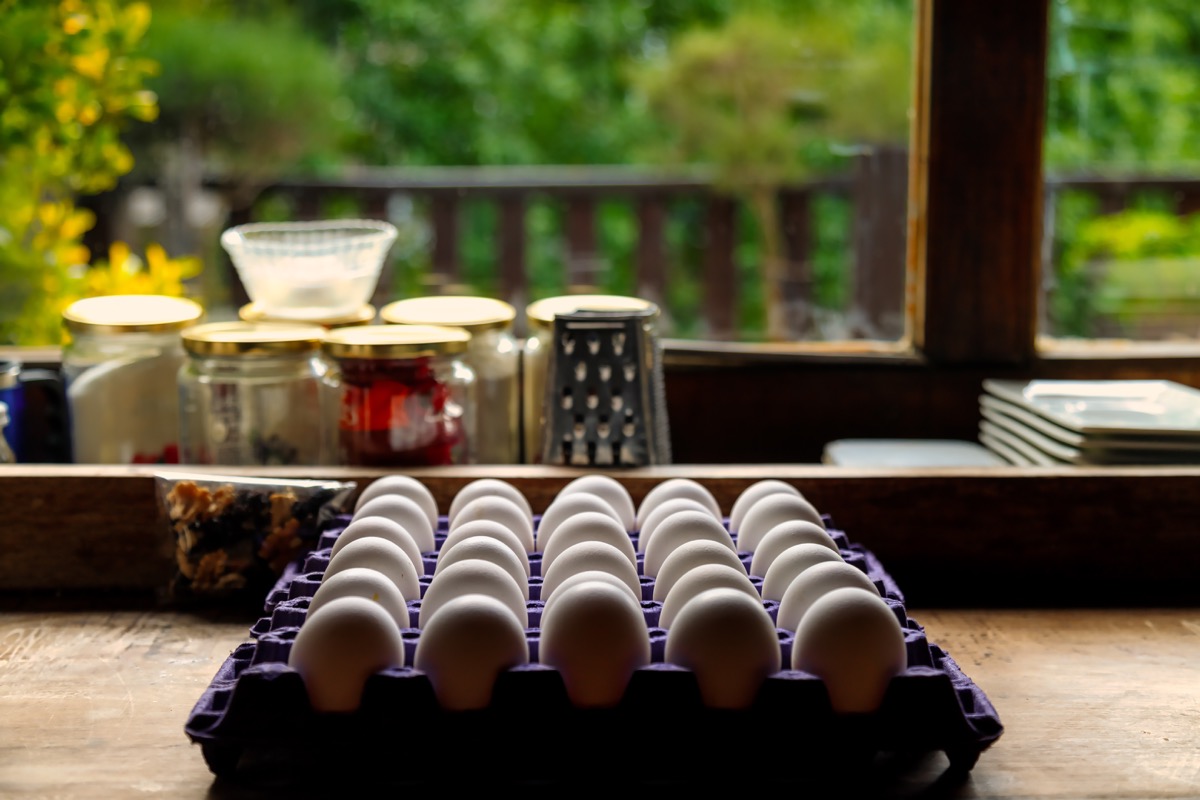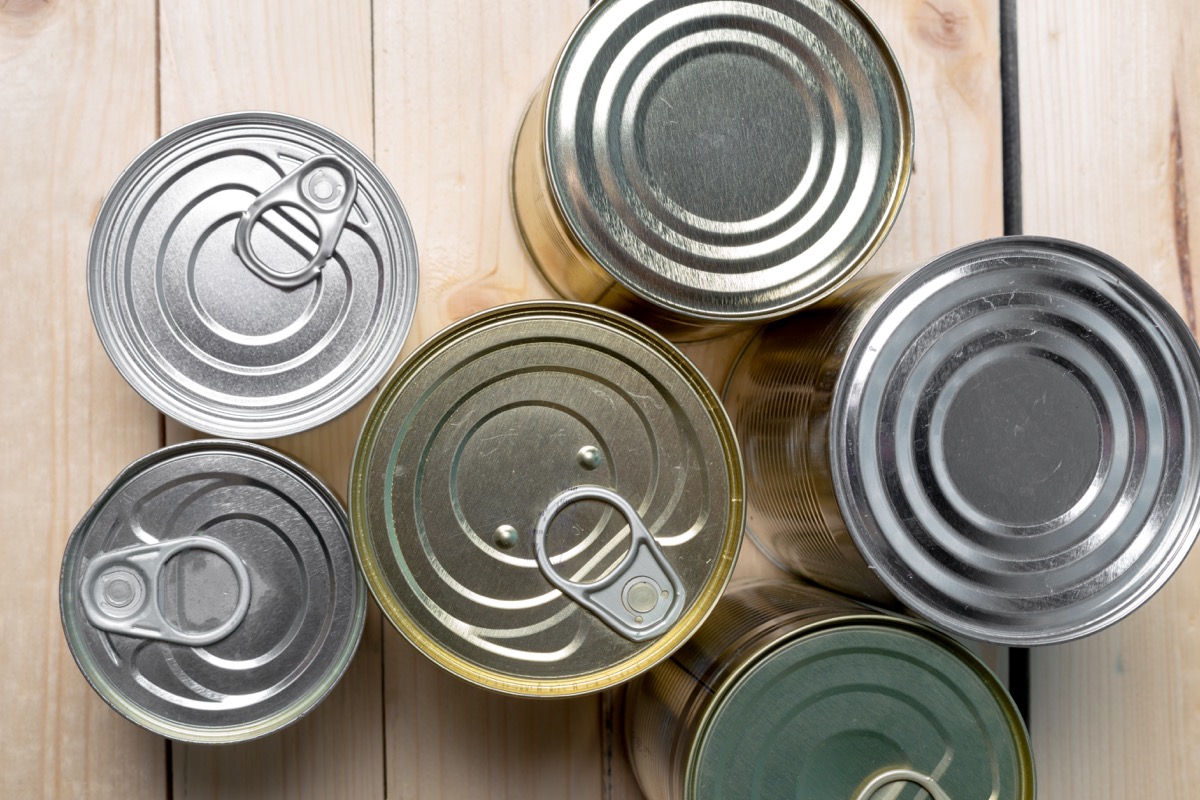6 Things You Should Never Leave Out on the Counter, Food Experts Warn

Learning to cook is about more than mastering your favorite recipes—it’s also about understanding the rules of kitchen safety. One of the biggest mistakes that home chefs make is failing to properly store foods, leaving them vulnerable to bacterial growth and other forms of foodborne illnesses. To prevent this, experts say it’s crucial to learn which foods you should never store on the counter.
While you may have a pretty good idea of the basics (for example, not leaving raw chicken lying out), they say there are a few confusing food items that tend to slip under the radar in many households. Wondering if you’re putting yourself or your loved ones at risk? These are the six foods you should never store on the counter, according to experts.
RELATED: 10 Things You Should Be Keeping in Your Refrigerator That Aren’t Food.
1
Natural nut butters

According to the National Peanut Board, most commercial peanut butters can last for up to three months in the pantry or on the counter after being opened. However, some natural nut butters require refrigeration to help preserve freshness and texture.
“Natural nut butters, which are made from ground nuts without any added preservatives or stabilizers, often need to be refrigerated after opening to maintain their freshness and prevent spoilage,” explains Trista Best, RD, a registered dietitian at Balance One Supplements.
“This is because natural nut butters contain high levels of unsaturated fats, which can become rancid over time if exposed to heat, light, or air. Refrigeration slows down the oxidation process and helps to preserve the quality and flavor of the nut butter,” she explains.
2
Jams and jellies

Because many types of peanut butter can be stored on the counter or in the pantry, some people keep open jam or jelly jars alongside them.
While the U.S. Department of Agriculture (USDA) says it’s safe to store an unopened jar of jam or jelly unrefrigerated for up to 12 months, it’s important to move these items to the refrigerator after breaking the seal to avoid mold and bacterial growth.
RELATED: 5 Items You Should Never Store in Your Pantry, According to Experts.
3
Cooked leftovers

When you’ve finished cooking and eating your food, the last thing you probably feel like doing is packing up the leftovers and putting them away. However, leaving this task for later can mean risking foodborne illness if you wait longer than two hours.
“Fresh ingredients should always be stored in the refrigerator. This includes fresh fruit, vegetables, meat, and meat substitutes—but that seems obvious right?” says Amy Hand, a pastry chef and contributing writer at The Skillful Cook. “The main act I’ve seen my friends and family be guilty of is storing cooked leftovers on the counter. Once food has been cooked, it needs to be refrigerated and well-reheated to prevent food-borne illnesses.”
4
Eggs

You likely already know that leaving milk and other dairy products on the counter will cause them to curdle or spoil. However, many people are less sure about whether you can leave eggs on the counter—especially since this is considered a safe practice in many places around the world.
The answer is that eggs should always be stored in a refrigerator at a consistent temperature of 45 degrees. In fact, American eggs can last just two hours at room temperature before they risk food-borne illness. That’s because when eggs are processed in the U.S., they’re washed and dried before being packaged. This removes the cuticle, a protective coating on the egg that helps prevent contamination from salmonella and other forms of harmful bacteria.
If you’ve left your eggs out overnight, for example, they’re no longer considered safe to eat, according to the Egg Safety Center.
RELATED: 7 Foods You Should Never Freeze, According to Experts.
5
Unfinished canned foods

If you open up a canned food item and only use a portion of its contents, it’s important to transfer what’s left into a ziplock bag or food storage container and then refrigerate it immediately.
Though canned foods can last a long time in the pantry while sealed, they are considered perishable—and vulnerable to bacterial growth—as soon as you open them.
6
Perishable foods

Finally, any food that is likely to spoil, decay, or become unsafe to eat if not stored at 40 degrees Fahrenheit or below is considered perishable. This includes cut fruits, vegetables, meat, fish, dairy, and any other consumable items with a limited shelf life.
This may be common knowledge, but it bears repeating: To prevent foodborne illness, you should never leave perishable food items out on the counter. Instead, refrigerate them within two hours to avoid bacterial growth and other forms of contamination, says the Centers for Disease Control and Prevention (CDC).
For more food safety tips sent directly to your inbox, sign up for our daily newsletter.